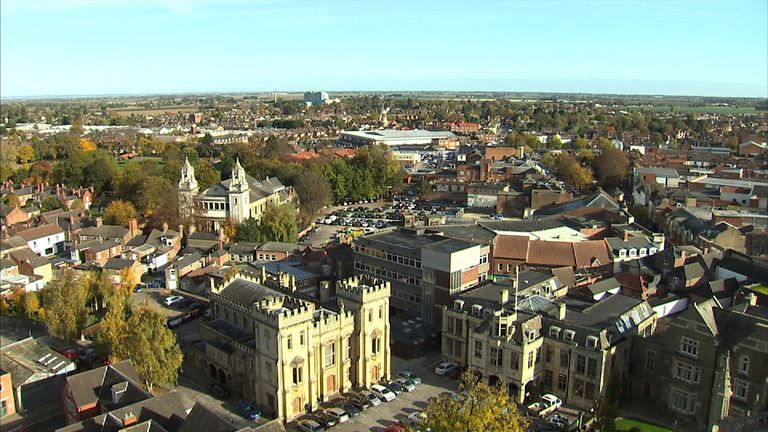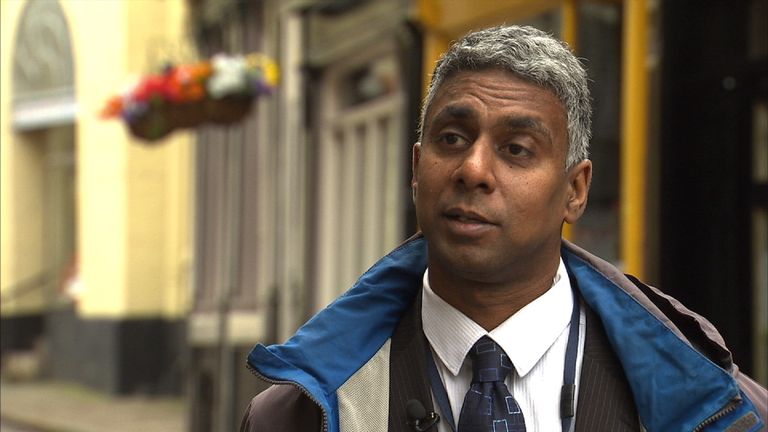Brexit and Boston: How workers' exodus could hit UK's most eurosceptic town
Businesses could shut and hospitals may struggle if EU workers leave - but immigration is still a major concern for locals.
Friday 4 November 2016 14:47, UK
Boston in Lincolnshire had the UK's highest Leave vote, with more than 75% voting for Brexit - but with many European workers thinking of leaving there are fears it could be hit hard.
People shopping in the town's market still have no doubt why it voted so strongly in the referendum - "immigration" is their immediate answer.
Perhaps not a surprise as at last count 13% of people in Boston were born abroad, with many locals saying the town has changed massively as a result.
Last year, more foreign people came to Boston than left and in some businesses 95% of the workforce are European.
On West Street, a hub for many of the food shops catering to European workers, Latvian community leader Ziedonis Barbaks tells Sky News "roughly about 30%" are thinking of leaving Boston.
He says many European families are considering moving to Ireland or Germany once the UK leaves the EU.
That could have a crippling effect on some local businesses - and also cause problems for staffing in local hospitals.
Julie Williams, of the Royal College of Nursing (RCN), spoke to us outside Boston's Pilgrim Hospital.
The trust that runs the hospital employs 339 people from the EU, but like much of the NHS it is still facing staff shortages.
It is looking for more than 300 nurses and midwives, and doctors are being brought over from Europe due to a shortage of GPs.
Ms Williams said: "There are 33,000 EU nurses currently working across the NHS in the UK, and there are 330-odd working in this particular organisation.
"I don't think that any organisation could sustain such a large loss in one hit and cope with it."
But it is in the fields surrounding Boston and across Lincolnshire that you see real importance of migrant labour.
Whereas a few hundred Europeans are employed at the hospitals, it is estimated 20,000 to 30,000 work in agriculture.
Sue Lamb has been selling flowers for more than 30 years and all but two of her staff are from mainland Europe.
She says she cannot rely on British labour and that her business would shut immediately if they lost their EU staff.
"They [British workers] basically just don't want it. We've lost the work ethic of people wanting this sort of work," she says.
"We would finish virtually overnight, as would many other industries in this area."
Back in town, local UKIP councillor Stephen Raven gives a blunt answer why many locals refuse to do the picking and packing agriculture jobs: because "we're lazy".
"They think, other people are here - we don't need to do it," he says.
However, he believes if a significant number of EU workers left it could benefit British workers as they would have "no choice" but to step in.
"Basically, the vacancies would be there and this would entail more businesses recruiting locally."
It will be several years before we get an idea of how many EU nationals are deciding to leave Britain because of Brexit.
Whatever happens though, towns like Boston, so transformed by immigration, will also be the most changed when ties with the EU are severed.







